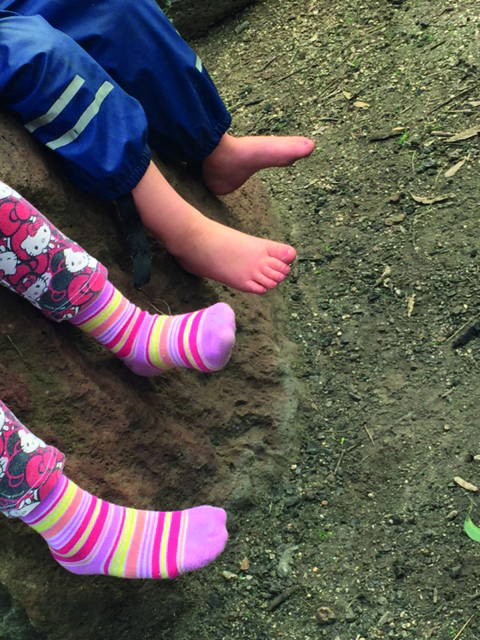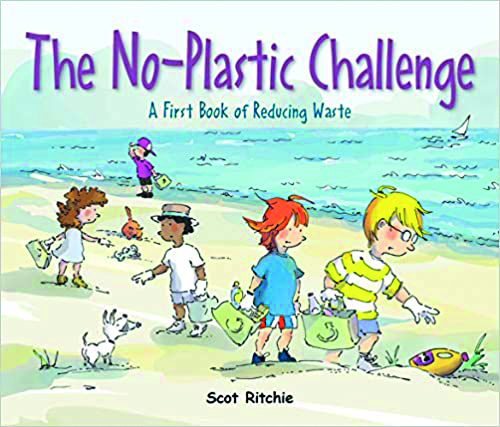
 Taking urgent action to combat climate change and its impacts is the theme of SDG 13, and education has a place in helping children to raise awareness and understand the issues that are impacting their world.
Taking urgent action to combat climate change and its impacts is the theme of SDG 13, and education has a place in helping children to raise awareness and understand the issues that are impacting their world.
YOU CAN
- Utilise children’s eco councils to bring a platform for discussion on what your school or setting could be doing to address climate change. This means that young children are involved.
- It is also good to involve local communities and parents to participate.
- Introduce and explain terminology such as: ‘weather’; ‘climate’; ‘change’; ‘impact’; ‘temperature’; and ‘warmer’.
- Question what we are doing to our Earth and watch together the short environmental film ‘One Earth’: https://bit.ly/3DreUpT. Pause when appropriate to ask provoking questions or answer children’s queries. Listen to the ticking clock sound at the end. Why is it there?
- Mindmap and highlight the key elements of your children’s thinking. Follow their ideas and generate ways that your setting could become ‘net zero’.
- This Young People’s Trust for the Environment film is a useful introduction for practitioners and children to understand ‘climate change’: https://bit.ly/3Irj1WC.
- Ensure you understand the difference between ‘weather’ and ‘climate’ – ‘weather’ refers to the atmospheric conditions in the short term, whereas ‘climate’ refers to long-term changes.
Learning links
Birth To 5 Matters (2021)
highlights the sector’s ‘responsibility towards UNESCO Education for Sustainable Development’.
Nursery World, November 2021: ‘A Special Report on Being Sustainable.’
Characteristics of Effective Learning, EYFS (2021):
- Playing and exploring – children investigate and experience things, and ‘have a go’.
- Active learning – children concentrate and keep on trying if they encounter difficulties, and enjoy achievements.
- Creating and thinking critically – children have and develop their own ideas, make links between ideas, and develop strategies for doing things.

Extension activities
- Ensure children go out in all weather. Let them feel the effects of rain, wind, snow, hail, and watch and observe these different features.
- Use Physical Development sessions to extend children’s understanding through movement and dance.
- Support the children to make their own musical instruments using recycled materials.
Learning links
Development Matters (2021)
‘Understand the effect of changing seasons on the natural world around them.’ Highlight in particular ‘seasonal features’.
Extension activities
- Read together the text Climate Change for Babies by Chris Ferrie and Katherina Petrou. Children are never too young to explore scientific concepts.
- Unpick the word ‘change’ – how is our world changing?
- Go on a neighbourhood walk and look for examples of actions that lead to climate change. Document them by encouraging children to take photographs of, for example, chimneys. Discuss why they took that photo and what positive action could be done to lessen its impact.
- Visit a local habitat and observe regularly how the locality changes because of people, the weather, pollution. Again, the children can have iPads to take their own images of things that matter to them. Encourage children to explore their natural habitats and learn about who lives there.
Learning links
Birth To 5 Matters (2021). Understanding the World ‘Share stories related to pollution, climate change, habitat erosion.’
Extension activities
 Read together Join The No-Plastic Challenge! by Scot Ritchie to raise awareness of just how much plastic we use every day.
Read together Join The No-Plastic Challenge! by Scot Ritchie to raise awareness of just how much plastic we use every day.- Challenge the children to have a ‘no plastic day’ in the setting.
- Do an audit in your setting using the OMEP ESD rating scale, which focuses on all three pillars of sustainability: economic, environmental and socio-cultural: https://bit.ly/3y0LHAO.
Learning links
EYFS (2021) ‘…foster their understanding of our culturally, socially, technologically, and ecologically diverse world.’
Birth To 5 Matters (2021) ‘Use conversation with children to extend their vocabulary to help them talk about their observations and ask questions.’
Diane Boyd is a senior lecturer, early years, at Liverpool John Moores University, d.j.boyd@ljmu.ac.uk.
FURTHER READING
‘An Early Childhood for Sustainability resource that embeds the SDGs and STEM into pedagogical practice’ by Boyd, Neame, King and Mann (NFCE Publications)









